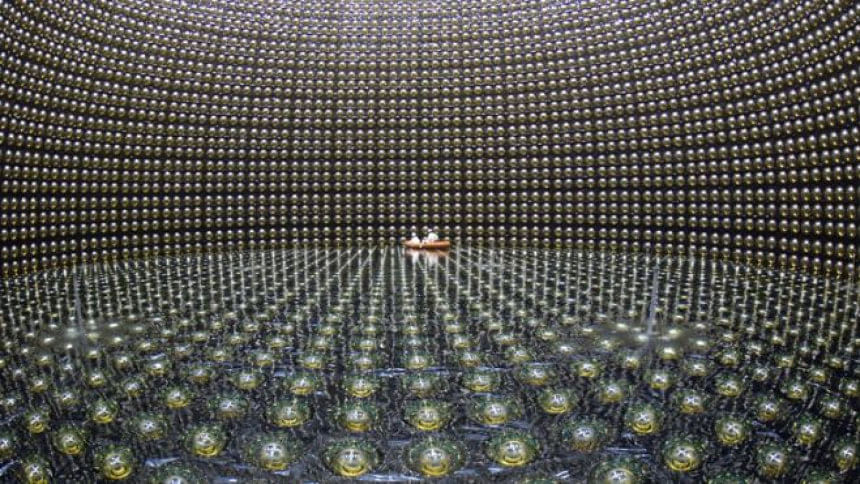Neutrino 'flavours' win physics Nobel Prize

The 2015 Nobel Prize in Physics has been won by Takaaki Kajita and Arthur McDonald, for discovering how neutrinos switch between different "flavours".
Neutrinos are ubiquitous subatomic particles with almost no mass and which rarely interact with anything else, making them very difficult to study.
Kajita and McDonald made important measurements of their properties using huge instruments in Japan and Canada.
They were named at a press conference in Sweden.
Goran Hansson, secretary general of the Royal Swedish Academy of Sciences, which decides on the award, declared: "This year's prize is about changes of identity among some of the most abundant inhabitants of the universe."
Phoning Prof McDonald from the press conference, he said, "Good morning again - I'm the guy who woke you up about 45 minutes ago."
Prof McDonald spoke from Canada, where he is a professor of particle physics at Queen's University in Kingston. He said hearing the news was "a very daunting experience".
"Fortunately, I have many colleagues as well, who share this prize with me," he added. "[It's] a tremendous amount of work that they have done to accomplish this measurement."
Prof Kajita, of the University of Tokyo in Japan, has been contacted by the academy but was unable to speak at the briefing.
The total number of Nobel physics laureates recognised since 1901 is now 201, including only two women.
The Royal Swedish Academy of Sciences also decides on the chemistry Nobel - announced tomorrow.
The first of the 2015 Nobel Prizes, for physiology or medicine, was awarded on Monday by the Nobel Assembly at Karolinska Institutet. It was shared by researchers who developed pioneering drugs against parasitic diseases.

 For all latest news, follow The Daily Star's Google News channel.
For all latest news, follow The Daily Star's Google News channel. 



Comments